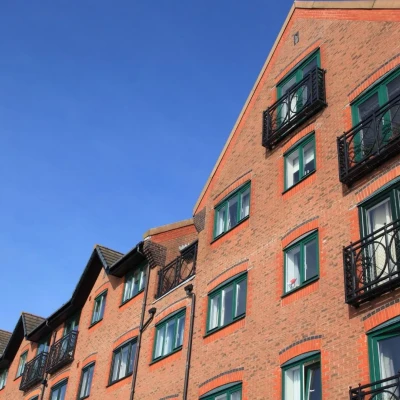Disposing of a property portfolio following probate

October’s Budget brought the unwelcome news that from April 2026, agricultural property relief (APR) and business property relief (BPR) will no longer be fully exempt from inheritance tax. This change will impact considerably on the probate administration of asset-wealthy individuals.
Although the changes aren’t immediate, they will require executors to deal differently with substantial property assets and to consider the variety of options available to them to gain maximum return on property investments despite the additional tax.
Our Corporate Sales division works across a range of brands within LRG – from maintenance and planning consultancy, to agency and auctions - in addition to external partners, to advise on options for property, especially when circumstances or ownership changes. These options take into account various factors including timeframes, adversity to risk/flexibility and, importantly, include not only the best circumstances for a potential sale but how best to maintain/enhance the property asset for maximum financial benefit, rather than rushing into a sale prematurely.
Strategic review
A review of the options should always start with a viability study which then informs the most appropriate strategy. On a very basic level, this would typically involve ascertaining current market values, proposed disposal options and understanding the demographics of best target market and future investment values/yields.
A strategic review and valuation will look at the true value of the property asset and determine whether any sale should be structured as a portfolio investment, or would be more successful if marketed as individual assets.
External factors and changing propensity to risk as the situation evolves will invariably impact on these decisions and, specifically in changeable economic circumstances, may change – so reviews as strategically important as these are best revisited on an ongoing basis.
Equity release through property / property sale
If a sale is considered the best route, the price achieved can be considerably increased if the asset is stabilised prior to the sale. This might involve securing business rates rebates, or for a commercial property, overseeing maintenance and repair obligations, licensing and regulatory requirements. All of this helps achieve the best financial outcome at the lowest risk, also providing more support to the owner and any others impacted – tenants, suppliers and any investors.
Determining the most best marketing price for a sale is dependent on stabilising these factors. It is also impacted by the owner’s priorities in terms of timing: some will opt for a quick sale as an opportunity to move on, whereas others will decide to hold out for the best price or a potential uptake in demand. An understanding of the vagaries of the market is crucial, and so we would always recommend that when any property valuation is done by an RICS qualified valuer. The experience and access to data provides the best overview of the market, local comparables and the direction in which values are moving.
Understandably a concern about putting a property on the market is that the chain may break and all progress will be lost. So bear in mind that there are companies which provide a guaranteed sale. Although full market value is not necessarily achieved, many of these companies may offer an additional payment if they are able to achieve a sale within a defined time or price bracket.
Capitalising on property / land value
Depending on timing and resources, there is considerable value in investing to increase the value of a property asset. For example, if land forms part of the overall asset, this might involve seeking planning consent for additional buildings. Planning consent can increase the asset’s value considerably but can be time-consuming, especially if an allocation in the local authority’s Local Plan is required prior to a planning application being made.
Another planning route is change of use. Post Covid, residential values now outstrip commercial values and so to change a building’s use from commercial to residential may result in a much more favourable price being achieved. Alternatively it might return the asset to a more viable position and provide a new income stream for the existing owner.
Change of use can now be achieved through permitted development rights (PDR) and amendments to planning legislation were introduced during Covid specifically to help struggling businesses. In September 2020, Class E was created to assimilate a number of previously separate planning use classes (shops, financial and professional services, food and drink; office space; clinics, health centres, creches, day nurseries, and day centres; gyms and most indoor recreations, and research and development or light industrial town centre use) into ‘E for everything’. This enables those individual uses to be changed, providing they remain within Class E, without the need for a full planning application. Then, in 2021 further legislation enabled any use within the new Class E to be changed to residential use, again without the need of a planning application (providing certain conditions are met). So essentially a restaurant or hotel can be changed into a home with a relatively straightforward planning process.
Leasehold arrangements
Whether the use of the building changes or remains, there may be tenants in place. A property consultancy can negotiate new leases and tenancy agreements as necessary, protecting the interests of both parties and ensuring minimal disruption. It is important to note that existing leases can impact substantially on viability, and so a review of leases is a necessity. The same applies to any outstanding rent or other debts.
Maintenance issues and options
Again, owners’ inclination and options on restoring value through maintenance work will vary depending on the circumstances. If a property is a state of disrepair we may advise that our maintenance company is instructed to carry out the necessary work to increase the value. Sometimes this is not an option due to timing or resources and a quick sale of a dilapidated property is necessary. In this case we may instruct our auctions branch, First For Auctions to achieve a quick sale. With First For Auctions typically achieving a significant rise on the guide price, this is a fast and often profitable route.
Conclusion
Selling a business or a property asset can be difficult for anyone and especially when it coincides with bereavement, and so it’s important to get the right advice, from a company well placed to advise on the wide range of options. Because our team consists of professionals from a range of backgrounds within property, we understand the various different options and routes available in different circumstances, and have experience of similar situations.
From achieving fast sales at auction to benefiting from change of use and substantially upgrading assets, our experience can create considerable efficiencies and make the difference between success and failure.

Contact Us
Got a question, general enquiry or something else?
You may also like
Since we started in 1987 we have grown to one of the UK’s largest property groups, we can save you time and money by offering a range of services and expertise under one roof.




